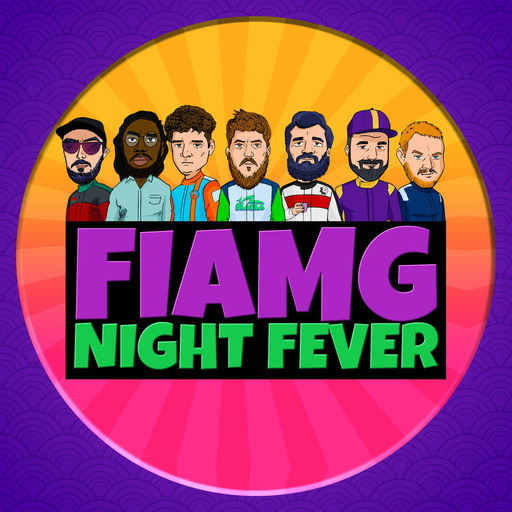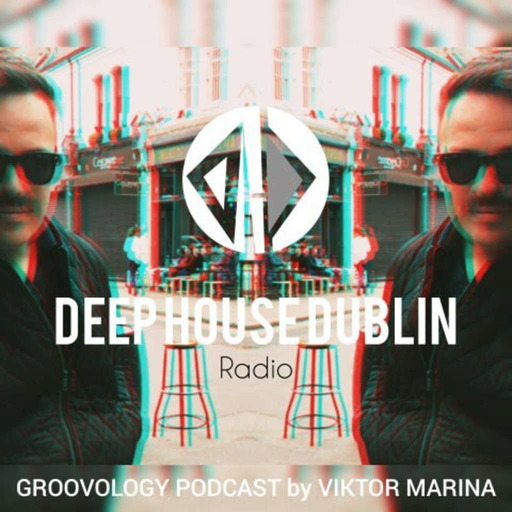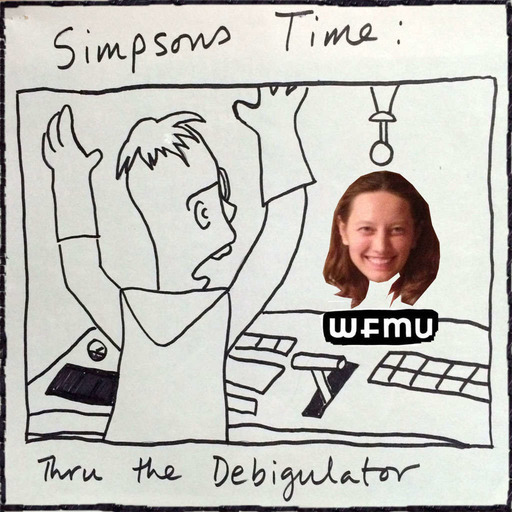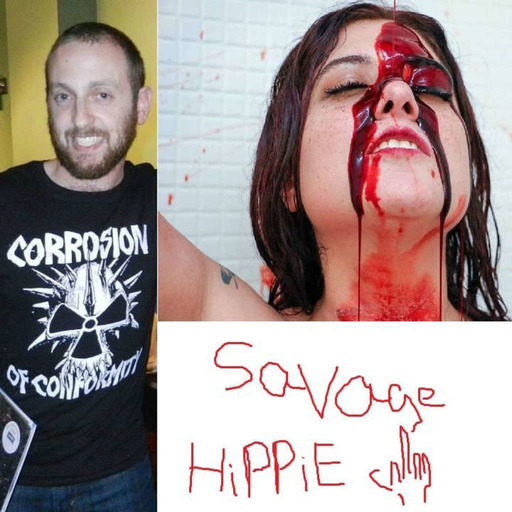
|
Performance, Harmonie & Commercial
Ce podcast est destiné aux responsables marketing et vente ainsi qu'aux dirigeants de sociétés assumant des fonctions commerciales.
Nous vous partageons tous les mois les bonnes expériences en matière de recherche de nouveaux clients pour les entreprises actives en business to business. Vous pouvez retrouver chaque épisode sur le site de https://phcom.be (PHCom), mais également sur toutes les bonnes plateformes de podcast.
Ce podcast est enregistré avec le support technique de The Podcast Factory Org (asbl-vzw) dans leur studio podcast chez Transforma bxl à Evere.
Music by ComaStudio from Pixabay.
|
|

|
FIAMG Night FeverFormule Blabla
FIAMG Night Fever
Viens parler F1 aux #FIAMGNightFever
|
|

|
Deep House Dublin Radioby Viktor Marina
Deep House Dublin Radio
Bosnian born, Dublin based DJ/producer and radio host Viktor Marina has been involved in electronic music since 2001, and a DJ since 2004. From being a music journalist through newspapers and radio, DJing to running various club nights as a promoter. As a founder and resident at Deep House Dublin has run several residencies in some of the major clubs in Dublin promoting and supporting the likes of Sandrino, Denis Horvat, Toto Chiavetta, Petar Dundov and more. In June 2020 he released his debut EP Utopia on Portuguese imprint Musica Gourmet and the new EP Destination House has landed in 2021 on Brazilian label Plano B.
At the moment, his main focus is his CONFINED SPACES RADIO SHOW on the legendary Bloop London Radio!
From House to Techno... Deep, Dark, Melodic and everything in between….
|
|

|
How to Cook Fish by Olive GreenLoyal Books
One hundred simple fish sauces. Sixty-five ways to cook mackerel. The Catching of Unshelled Fish. Twenty-seven ways to Cook Frogslegs. Now that should certainly make you reach...
One hundred simple fish sauces. Sixty-five ways to cook mackerel. The Catching of Unshelled Fish. Twenty-seven ways to Cook Frogslegs. Now that should certainly make you reach for your apron and fish knife!
How to Cook Fish by Olive Green is a vintage culinary classic, filled with simple, easy to follow recipes rendered in a terse, no nonsense style. There's none of this fiddling with scales, weights and measures. What you get is a mélange of interesting, unusual ways to cook seafood without worrying about lists of ingredients, timings, temperature or any of the conventions followed by traditional cookbooks.
If you've read that old Victorian favorite, Lavender and Old Lace (which was later adapted very successfully as Arsenic and Old Lace) by Myrtle Reed, you'd certainly be interested to know that the author had an equally successful career as a writer of popular cook books. Writing under the pseudonym Olive Green, Reed published six very successful books on cooking. However, from 1898 to her suicide in 1911, she continuously published at least one novel every year. The books are romantic and highly emotional in nature, full of unrequited passion, revenge, mystery and supernatural happenings. She also wrote a collection of stories about important women who made a difference to society. In between, she wrote pamphlets, married her Canadian pen-pal, suffered severe and debilitating bouts of insomnia and engaged in charity work.
Her cookbooks are characterized by interesting tips on home making and the art of cooking, peppered with literary nuggets and quotations, witty remarks and anecdotes, all of which make How to Cook Fish not just an excellent recipe book but also an interesting and entertaining read. She also provides lists of what fish are in season during particular times of year, thus ensuring that the cook uses only the freshest of ingredients.
How to Cook Fish is divided into 45 chapters. The One Hundred Fish Sauces are arranged in alphabetical order, starting with “Admiral Sauce” and ending with “White Sauce.” In between you have recipes for “Brown Tomato Sauce” “Sicilian Sauce” and other such unusual concoctions. Under the chapter One Hundred Miscellaneous Recipes you have items such as Fish a la Brunswick, Chartreuse of Fish, Jellied Fish Salad and many other great variations.
This is indeed a great addition to your kitchen library and the clear, simple way in which the recipes are presented would tempt even the least adventurous of cooks to try a hand at one of these delicious sounding creations.
|
|

|
Simpsons Time: Thru the Debigulator with Amanda | WFMUAmanda and WFMU
WFMU presents Episode recaps and Simpsons theory by Amanda Nazario.
Simpsons Time is several people's favorite feature of Amanda's radio program Nazario Scenario. One episode is discussed per week, focusing on the show's writing and its impact on the cultural landscape. Here we present the episode recaps and analysis all on their own, in snacktacular scaled-down form. Note: For a re-bigulated listening experience with the rest of Amanda's show, you can find the Nazario Scenario archives here.
|
|

|
Savage HippieSavage Hippie
I’m Edwin. Welcome to the Savage Hippie podcast. …
I’m Edwin. Welcome to the Savage Hippie podcast. For those wondering, I stole the name “Savage Hippie” from the Melvins song “The Savage Hippy.” I used to do the podcast with David Cole of Takimag and Ann Sterzinger, writer of several novels, including NVSQVAM and The Talkative Corpse, but now I have a new co-host named Rachel Cohen-Bourne. We talk about news, pop-culture, politics, and other ephemera just like before. If you listened to this for the other hosts, you know where to find 'em.
|
|

|
Free city audioguide from iAudioguide.com for several citiesinfo@iaudioguide.com
Free samples of the many free multilingual audio guides from iAudioguide.com. We currently cover London, Paris, Barcelona, Rome and Brussels in English, French, Italian and German, and our parnter websites offer free quality audio guides for more cities in the world. There are separate podcasts for each city and each language. This is the podcast to inform you whenever a new city or a new language version is added. To stay informed on updates for specific cities, please subscribe to the city podcast in your language. The feeds/links you can find on our website.
|
|

|
Illuminations include some autobiographical allusions to his voyant (visionary) period, which began in 1869; but Illuminations is neither a confession nor an apology. Its several...
Illuminations include some autobiographical allusions to his voyant (visionary) period, which began in 1869; but Illuminations is neither a confession nor an apology. Its several dozen short prose works and two free-verse poems transcend prose grammar by allowing their words to drift away from their dictionary definitions. Ever-elusive, relentless, overflowing with sinuous cadences, Illuminations transcends Une Saison en Enfer as it in turn had transcended Rimbaud’s early verses. Some scholars even propose that some of the Illuminations may have been written after Une Saison, which supposedly marked his farewell to literature.
|
|

|
Hands Up 4 Ever ! By DJ PsymonDJ Psymon
" United people for lyrics and crazy melody "
Un podcast entièrement consacré au Hands Up et à ses dérivés ! Bonne écoute ;)
|
|

|
Mind the Brain ! Neurosciences et cliniqueUNIL | Université de Lausanne
La remarquable avancée des neurosciences incarne sous des modalités inédites une question qui préoccupe depuis longtemps les disciplines les plus diverses : l’incarnation de l’esprit dans le cerveau.
La remarquable avancée des neurosciences soulève de passionnantes questions dans la perspective des sciences humaines. Elle incarne sous des modalités inédites une question qui préoccupe depuis longtemps les disciplines les plus diverses, comme la philosophie, la physiologie, la biologie, la psychologie, la psychiatrie et la médecine : l’incarnation de l’esprit dans le cerveau.
Mind the Brain 2009: À l’interface entre les procédures dites « dures » des neurosciences et l’art subtil de la clinique, le colloque « Mind the Brain ! » vise à promouvoir un dialogue ouvert et critique, en associant systématiquement à ces perspectives une approche de type sciences humaines ou sociales, autour des cinq thèmes Action, Cognition, Corporéité, Emotion, Identité.
Mind the Brain 2010: What do the new brain sciences do (or not) to/for their own disciplinary framework – both from a theoretical and practical standpoint ? How does the question of interdisciplinarity (or call it trans-, co-, etc. disciplinarity) emerge (or not) in relation to their own research or clinical practice ?
Mind the Brain 2011: These days we can observe a tendency towards modulating the psyche through actions on the brain, thereby reshaping identities. Psychotropic drugs are the favoured levers of these actions. Since the 1950s, neuroleptics, antidepressants, anxiolytics and psychostimulants are prescribed, sold and consumed in order to palliate mental suffering or treat mental illness. Does the success of these substances show the effectiveness of the treatment of recurrent and universal disorders or, conversely, does it reflect a specific design of psychological ailments and their treatment methods in contemporary society? In either case, the development of psychotropic drugs highlights the physiological and metabolic dimension of the modulation of the subject, as governed by a "chemical brain". For its fourth edition, the symposium Mind the Brain 2011 combines several perspectives to take a look at this chemical conception of the brain. As in previous editions, the symposium privileges work and reflections focusing on fields of tension or collaboration between basic research, the medical clinic and the human and social sciences.
|
|

|
Génétique humaine - Jean-Louis MandelCollège de France
Né à Strasbourg en 1946. Docteur en médecine et Docteur es Sciences. Il a été professeur de génétique à la Faculté de Médecine de Strasbourg jusqu'à sa nomination au Collège de France, le 1er novembre 2003. Depuis septembre 2002, il est Directeur de l'Institut de Génétique et Biologie Moléculaire et Cellulaire de Strasbourg (IGBMC, U184/UMR 7104 de l'INSERM, CNRS, Université Louis Pasteur). Il dirige une équipe de recherche qui se consacre depuis 1982 à l'analyse de maladies génétiques. Son laboratoire a identifié une dizaine de gènes responsables, lorsqu'ils sont mutés, de maladies héréditaires affectant le système nerveux ou le muscle. En 1991, Jean-Louis Mandel et ses collaborateurs ont découvert un nouveau type de mutations, une expansion instable de répétitions trinucléotidiques, responsable du syndrome de retard mental avec X fragile, la cause la plus fréquente de retard mental familial. Les mutations instables se sont révélées par la suite être responsables de plus de 15 maladies neurologiques. dont elles expliquent les anomalies de transmission familiale. Le laboratoire de Jean-Louis Mandel a contribué de manière très importante à la mise en évidence du mécanisme d'expansion trinucléotidique dans d'autres pathologies (ataxies spino-cérébelleuses de type 2 et 7, ataxie de Friedreich), à la compréhension de l'évolution par étapes successives de ces mutations dans les populations humaines, et à la compréhension des mécanismes pathologiques induits par ces mutations (pour l'X fragile, la maladie de Huntington, et l'ataxie de Friedreich). Son laboratoire a également identifié les gènes, aux fonctions inattendues pour d'autres maladies neurologiques ou musculaires: l'adrénoleucodystrophie (une maladie démyélinisante très sévère), l'ataxie avec déficit en vitamine E (et découverte d'une fréquence élevée de cette maladie dans les populations d'Afrique du Nord),la myopathie myotubulaire (découverte d'une nouvelle famille de phosphatases, conservée dans tous les organismes eucaryotes, et démonstration de son implication dans le métabolisme des phosphoinositides), le syndrome de Coffin-Lowry.Il se consacre maintenant à l'analyse des mécanismes physiopathologiques de plusieurs de ces maladies à l'aide de modèles animaux ou cellulaires. Jean-Louis Mandel a également développé, pour le syndrome X fragile et pour plusieurs autres maladies, des tests pour le diagnostic et le conseil génétique. Il dirige un important laboratoire de diagnostic moléculaire de maladies génétiques au CHU de Strasbourg. Il est membre du conseil scientifique de plusieurs associations de malades et familles concernées par diverses maladies génétiques.
|
tous les 11 résultats

